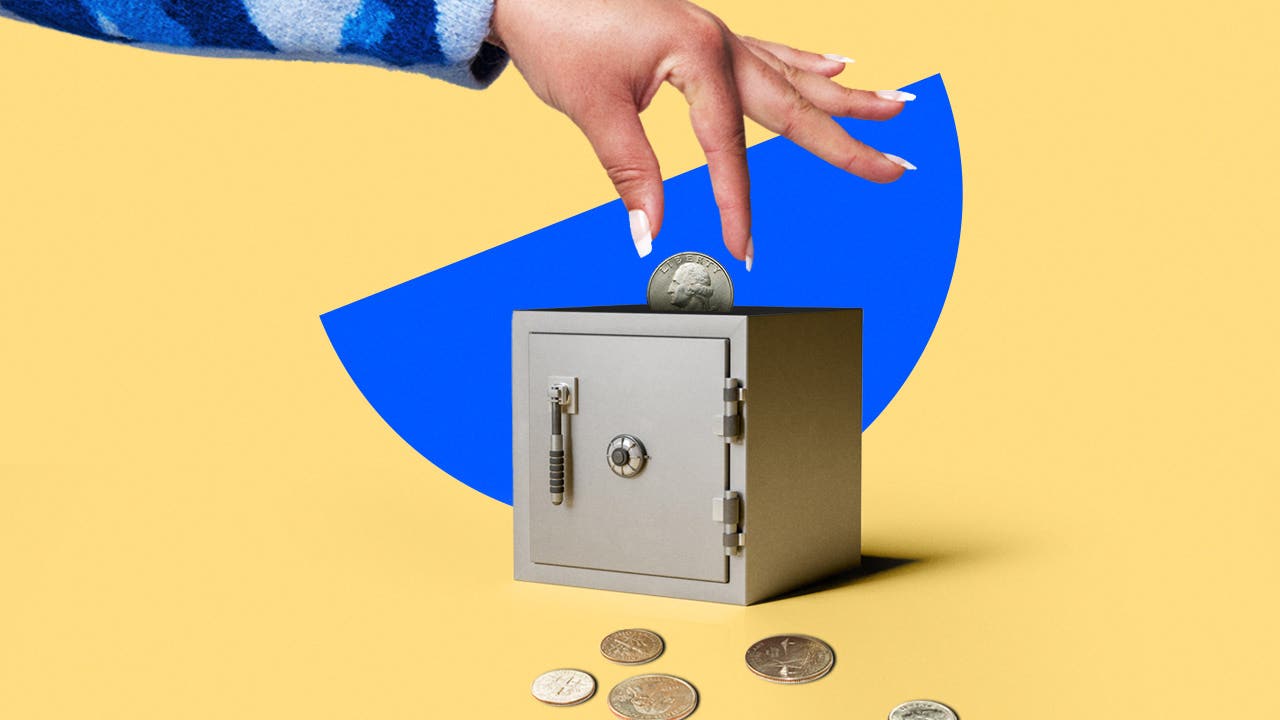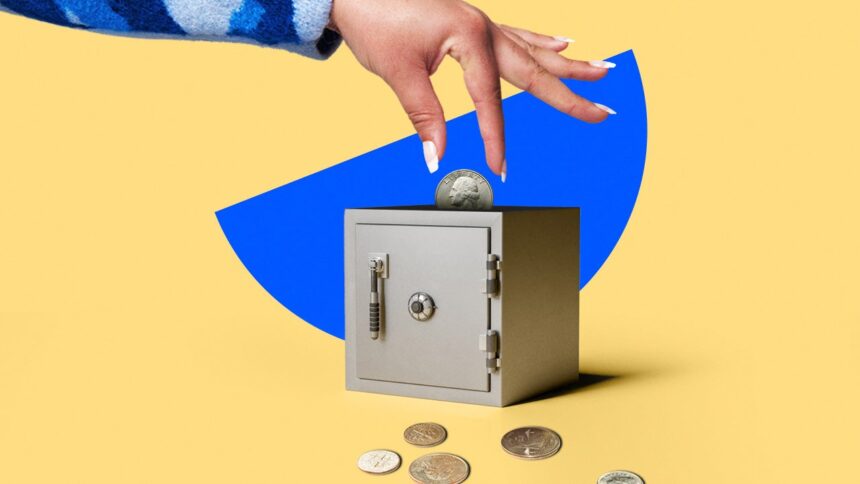
Images by Getty Images. Illustrations by Issia Davis/Bankrate
The average savings account fee is a benchmark for the overall interest rate environment, but it is not a rate that should be resolved.
Rather, aim for Annual yield (APY) Many times the national average, as high-yield savings accounts offer. It’s easy to find High-yield savings account It offers competitive returns with low minimum balance requirements.
National Average Savings Account Interest
Many of the best online banks have a savings interest rate that is higher than the national average savings account interest rate. The higher the rate, the greater the interest you earn from savings. According to a Bank Rate survey of institutions as of May 28, 2025, the national average savings account yield is 0.59% APY. The best high revenue savings accounts pay APYs of 4% or more.
How Bank Rates Calculates National Average
Bankrates survey 500 banks and credit unions each week to generate a national average. The survey includes institutions that are widely available and offer high yields, as well as some of the nation’s largest banks.
Linked Checks and Savings Interest Rates
Link your savings account with a Checking account It’s one way to get higher yields at some banks. Sometimes called Relationship rateIt is more common for brick and mortar banks to offer them.
For example, one way for US banks to get a higher APY is to combine eligible checking accounts with smart savings accounts from the bank. Depending on how much money you store in the bank, the relationship rate can be significantly higher than the standard rate.
- The standard APY for banks is 0.05% APY in any balance. *
- However, if you have a different qualifying US bank account and your entire account is under $5,000, you will get a 1% APY. *
- You’ll earn APYs of 3% or more because you have a balance of at least $25,000 across your account. *
However, in many cases, you often find higher APYs in online banks, lowering the minimum requirements for opening an account and getting a higher rate. Many online banks have a minimum operating requirement of less than $100 and pay high APY on all balances.
*Annual Percent Yield (APY) is as of May 22, 2025. Bankrate editorial team updates this information weekly. APY may have changed since the last update and may vary depending on the region of some products.
Conclusion
Compare online banks with major banks when searching for high-yield accounts. Online banks have a low minimum balance, no monthly fees, and may be able to pay the same APY on all balances. In many cases, the interest rates on these savings accounts are higher than what you earn from a savings account in a brick and mortar bank, even with a relationship rate.
Use the national average savings rate as a gauge. You should be able to easily find a bank that offers APY multiple times higher than the national average.
Calculate the difference See what higher profit revenues look like among larger bank APYs compared to online bank yields. The power of compound interest helps your interests to gain interest over time.


